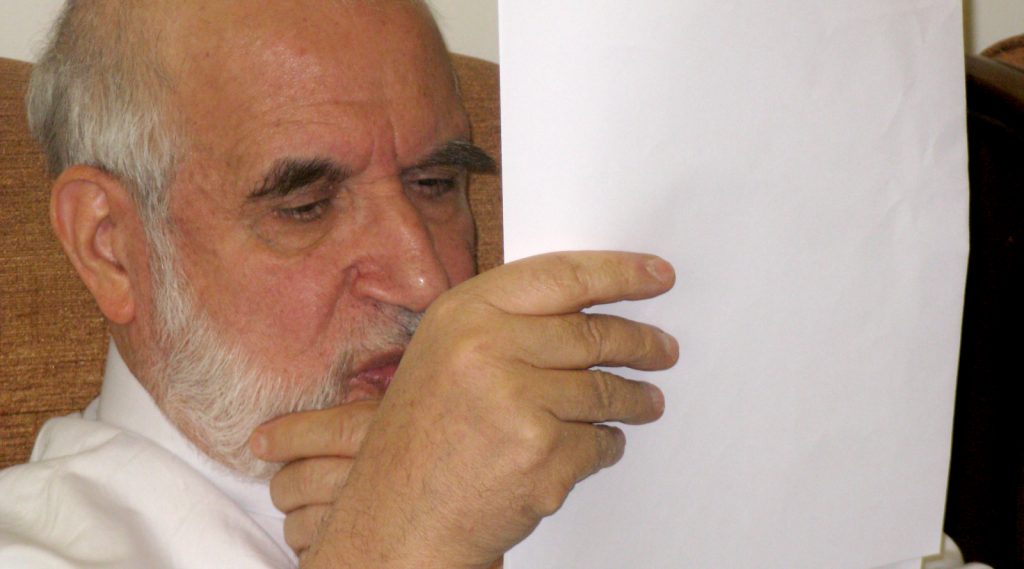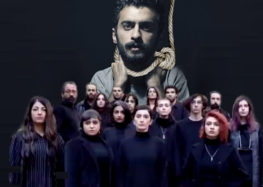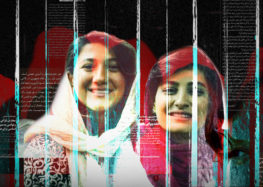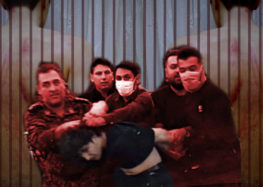Judiciary Contradicts Rouhani Officials’ Promise to Detained Opposition Leader Mehdi Karroubi

The spokesman for Iran’s judiciary, Gholamhossein Mohseni Ejei, has publicly rejected a report that security agents will leave detained opposition leader Mehdi Karroubi’s home in northern Tehran as “total lies.”
“Mr. Ejei is confusing the issue,” Karrobi’s son, Mohammad Taghi Karroubi, told the Center for Human Rights in Iran (CHRI) on August 20, 2017. “Yes, the agents have not left the house yet, but the deputy intelligence minister and the health minister said in a meeting with my father in the hospital that they would leave when he returns home.”
“It would be better if Mr. Ejei does his job and holds a public trial for those who have been held under house arrest for more than six years,” said Mohammad Taghi Karroubi. “The government has pledged not only to pull out the security forces when my father leaves the hospital, but also promised to try to convene a public trial.”
At a press conference in Tehran on August 20, Ejei said the status quo would not change until the Supreme National Security Council (SNSC), chaired by President Hassan Rouhani, decides otherwise.
“If the SNSC decides to end the house arrests, the Judicial Branch will act according to its duties,” Ejei said.
“I want to be very clear in stressing that the judiciary will not standby and watch those who are sensationalizing this story,” he added. “Take the cotton out of your ears: We will not be influenced by all the noise.”
Karroubi, a cleric and 79-year-old former presidential candidate, agreed to end his hunger strike on August 17, the day after he began it, after two officials from the Rouhani government agreed to order the security agents who have been monitoring Karroubi’s house arrest since February 2011 to leave his home.
Karroubi was also assured that the government would consider his second demand: a public trial.
Karroubi, Mir Hossein Mousavi (75) and his wife Zahra Rahnavard (71) have been detained under extrajudicial house arrest since February 2011 for challenging the result of the 2009 election and leading the peaceful, mass, street protests that came to be known as the Green Movement.
Ending the house arrests was one of Rouhani’s top pledges during his 2013 election campaign. Crowds of supporters chanted for the trios’ freedom during many of his rallies in 2013 and when he ran again in 2017.
However, at his first press conference after being re-elected this May, Rouhani refused to commit to ending the house arrests, instead suggesting that the solution depends on cooperation between the judiciary and other state branches.
Karroubi’s declining health, which has resulted in three hospitalizations in the past two months, has reinvigorated calls for his freedom and pressure on Rouhani to secure the trios’ release.
Reformist members of the Iranian Parliament have formed the Committee to Seek an End to House Arrests and prominent former President Mohammad Khatami has called on Supreme Leader Ali Khamenei—who reportedly supports the house arrests—to show mercy.
An outspoken conservative MP has also renewed his ongoing calls for a solution to the six-year-long crisis.
“Hojatoleslam Karroubi’s hunger strike should be a warning to those who insist on continuing his house arrest. His argument makes sense. He wants to be treated according to the law,” said first deputy Parliament Speaker Ali Motahari on August 17.
“He wants a fair public trial and will accept the verdict, whatever it may be,” he added. “It makes no logical or religious sense for some security and intelligence officials to go on insisting that he should repent in order to go free.”





